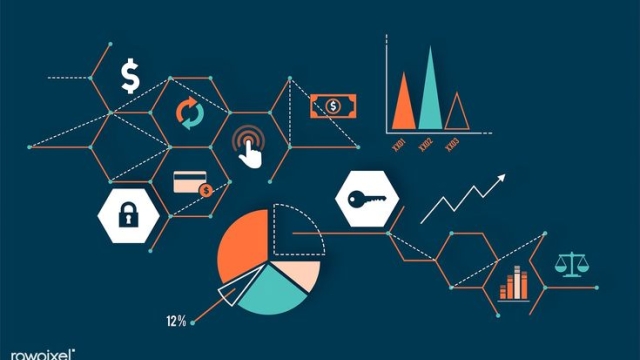
Research and data analysis are essential components in understanding the complexities of our world. They hold the power to unravel insights that shape industries, inform decision-making, and bring about transformative change. Through meticulous investigation and a keen eye for patterns and trends, researchers are able to extract valuable information from vast amounts of data. In this article, we will explore the significance of research and data analysis, delving into how they contribute to our understanding of the world around us and drive innovation in various fields. Join us on this journey as we uncover the power that lies within research and data analysis.
The Importance of Research
Research plays a crucial role in our understanding of the world around us. It helps us gain new knowledge, uncover hidden insights, and make informed decisions. By systematically investigating and exploring various topics, research allows us to continually expand our understanding and find answers to complex questions.
Through research, we are able to gather reliable and valid data, enabling us to draw meaningful conclusions and make accurate predictions. It helps us identify patterns, trends, and relationships, offering valuable insights across different fields and disciplines. By analyzing data, we can identify gaps in knowledge, discover new possibilities, and drive innovation.
Moreover, research helps us stay updated with the latest advancements and discoveries in our respective fields. It provides a solid foundation for further studies, allowing us to build upon existing research and contribute to the collective knowledge of humanity. Without research, progress would be stagnant, and we would be unable to develop effective solutions to the challenges we face.
In addition, research fosters critical thinking skills. It encourages us to question assumptions, challenge established theories, and explore alternative perspectives. By engaging in rigorous investigation, we develop the ability to think analytically, evaluate evidence, and come to well-informed conclusions. These skills are not only valuable in academia but also in our daily lives, enabling us to approach problems with a rational and evidence-based mindset.
In conclusion, research is of utmost importance in expanding our knowledge, driving innovation, and making informed decisions. It provides us with the tools to explore, analyze, and understand the world around us. Through research, we can uncover insights that have the potential to shape the future and improve the lives of individuals and societies as a whole.
Data Analysis Techniques
In the realm of research and data analysis, various techniques are employed to uncover meaningful insights and patterns. These techniques play a crucial role in transforming raw data into valuable information that can drive informed decision-making. Let’s explore some commonly used data analysis techniques.
Help With Thesis Data AnalysisDescriptive Analysis:
Descriptive analysis involves summarizing and organizing large sets of data to provide a clear understanding of the information at hand. It focuses on providing descriptions and visual representations of data that enable researchers to comprehend its overall characteristics. By utilizing techniques such as charts, graphs, and tables, descriptive analysis helps researchers identify trends, patterns, and outliers within the dataset.Inferential Analysis:
Inferential analysis takes data analysis a step further by utilizing statistical methods to draw conclusions and make predictions about a larger population based on a sample. This technique involves analyzing the relationships and dependencies between variables to infer meaningful insights. By leveraging probability and hypothesis testing, inferential analysis aids researchers in making generalizations and predictions while accounting for uncertainty.Qualitative Analysis:
Qualitative analysis involves examining non-numerical data such as text, images, audio, or video to gain a deeper understanding of people’s experiences, opinions, and behaviors. This technique is particularly useful when researching subjective aspects of a topic or studying human behavior. Researchers employ methods like content analysis, thematic analysis, or discourse analysis to extract meaningful themes or categories from qualitative data.
In conclusion, data analysis techniques are vital tools that enable researchers to extract valuable information from raw data. Whether it is through descriptive analysis, inferential analysis, or qualitative analysis, these techniques play a fundamental role in unraveling insights and facilitating evidence-based decision-making.
Benefits of Research and Data Analysis
Research and data analysis offer a multitude of benefits that can significantly impact various aspects of society. The power of these methods lies in their ability to uncover valuable insights and drive informed decision-making. By employing rigorous research techniques and meticulous data analysis, organizations and individuals can unlock a wealth of advantages.
Firstly, research and data analysis provide a solid foundation for evidence-based decision-making. Through careful examination and interpretation of data, patterns and trends can be identified, allowing for informed conclusions to be drawn. This process enables businesses, governments, and individuals to make strategic choices based on concrete evidence, reducing the risks associated with subjective decision-making.
Moreover, research and data analysis play a crucial role in improving efficiency and optimizing performance. By gathering and analyzing data, organizations can identify inefficiencies in their processes and identify areas for improvement. This allows for targeted interventions and adjustments to be made, ultimately streamlining operations and increasing productivity.
Lastly, research and data analysis foster innovation and drive progress. By exploring research findings and analyzing data trends, new insights and ideas can emerge. These insights can spark innovation and creativity, leading to the development of new products, services, and approaches. Ultimately, research and data analysis serve as catalysts for growth and advancement in various fields.
To sum up, research and data analysis offer numerous benefits, ranging from evidence-based decision-making to enhanced efficiency and innovation. The power of these methods lies in their ability to uncover valuable insights that can drive positive change. Embracing research and data analysis empowers organizations and individuals with the tools necessary to navigate complex challenges and cultivate a better future.
